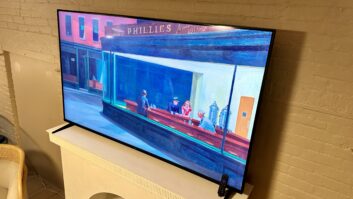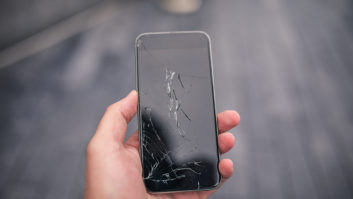Making good on its promise to up its CE quotient, Blockbuster has begun selling PlayStation2 game consoles in 3,000 of its 5,000-plus stores.
The hardware first appeared at the movie and video game rental chain on Feb. 15, and chairman/CEO John Antioco promised that the company “will be quickly adding Xbox and GameCube hardware as well.”
In a mid-month conference call, Antioco said the move is part of Blockbuster’s “mission” to become a leading, one-stop gaming destination, with the goal of doubling its game business from 10 percent to 20 percent of rentals by 2003.
To help the process along, Blockbuster may open standalone game stores, and will launch a range of new gaming initiatives by Memorial Day. These include improved and guaranteed availability on key titles across all platforms; increased title selection; an expanded accessories offering; and new pricing and marketing efforts, including a “try-before-you-buy” program.
Antioco said Blockbuster is proceeding with previously announced plans to carry a limited number of “entertainment-centric” CE products (see TWICE, Jan. 21, p. 14), and is “currently talking to a number of suppliers.” He said the aborted RadioShack store-within-a-store program provided Blockbuster with valuable insight into establishing its own profitable, high-margin model for selling select CE products that compliment its core movie rental business, and that it would be testing different CE offerings during the coming months.
Blockbuster enjoyed worldwide CE sales of about $80 million last year despite “limited time, effort, focus and marketing behind the category.” Much of that business was done in December, he said, citing “significant sales” of such items as DVD and VHS players, surround sound systems and accessories like cables and connectors. That, and the company’s continued status as the No. 2 seller of DirecTV systems, “clearly demonstrated our ability to sell additional entertainment products and our customers’ willingness to buy them from us,” he said.
Antioco added that the store-within-a-store experiment proved too costly for RadioShack due to an overly expansive product offering.












